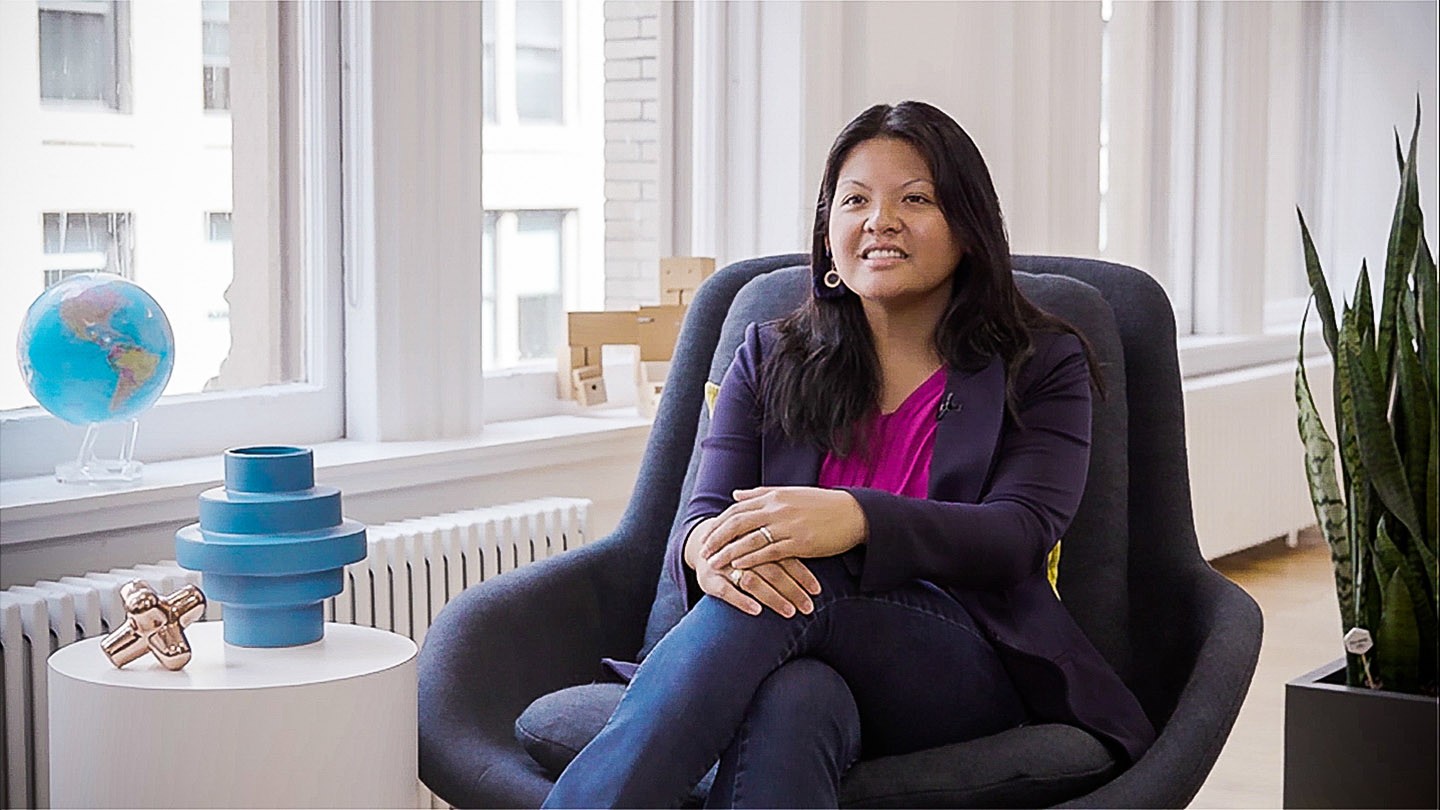
Innovation
How fintech companies are helping the financially excluded
Almost two billion adults around the world lack access to a bank account, and yet two thirds of them own a mobile phone. We bring you highlights from July’s Rise FinTech Insights report, which spotlights how fintech companies are developing alternative banking methods to boost financial inclusion – and ensure healthy finances are more than a “nice-to-have”.
Close to one third of adults, 1.7 billion people, are still unbanked, and about half of unbanked people include women, poor households in rural areas or the unemployed.
This staggering figure, highlighted in the latest edition of Rise FinTech Insights, demonstrates why financial inclusivity matters, and how fintechs across the globe, from the UK to India – including many in the Barclays Rise ecosystem – are using tech to bank the unbanked.
The work being done in the fintech space to address this issue, intended to “open doors for individuals and families in a way that many of us take for granted,” has seen entrepreneurs deploy everything from cryptocurrency to Open Banking and APIs in efforts to find new ways to support the financially vulnerable.
According to Mariquit Corcoran, Head of Barclays Ventures US, it is digitisation that holds the key to widening financial inclusivity. “The ability to access technology in the palm of your hand not only increases the speed with which someone can open their virtual wallet and pay their credit card bill, but also increases the options they have to manage their financial products and understand their financial wellness,” she says.
“As many as 70% of Americans live paycheck to paycheck”
In the US, 50% of workers believe they’d be more productive if they weren’t worrying about their finances, and 63% can’t cover a $500 emergency expense – arguably anxieties that will have been amplified during the pandemic.
The ability to access technology in the palm of your hand increases the options they have to manage their financial products and understand their financial wellness
Managing Director, Head of Barclays Ventures US

Fintechs in Barclays’ global Rise network are tackling financial exclusion
Chris Britt, Co-Founder and CEO of Chime – a leader in the US challenger banking segment that offers internet-based, fee-free services – spoke to Barclays’ Patrick Leonard, Managing Director and Co-Head of Emerging FinTech for Barclays International, about the role challenger banks play in remedying this problem. “There is a huge segment of America that has a lot of anxiety around their money and day-to-day finances.” Helping them achieve “financial peace of mind”, he says, starts with providing a banking relationship that doesn’t rely on fees.
“As many as 70% of Americans live paycheck to paycheck – we offer free services such as early access to paychecks and overdraft protection.”
Innovative fintech thinking has come to the aid of another swathe of US society: the 2.5 million newcomers to the country on long-term visas who are, for the most part, unable to access credit.
Collin Galster, Head of Business Development at Nova Credit, identified a solution to this problem facing the US’s foreign-born population, which is set to rise to 50 million by 2030. The company, a cross-border credit bureau, transfers individuals’ financial histories from one country to another, remedying the issue of lenders not being able to access enough financial information to feel comfortable lending, and therefore enabling immigrants to start funding their futures.
There is a business imperative to this issue, as well as a moral one. The US Census Bureau estimates that “more than 80% of the US population growth will come from newcomers”. And yet, “upon arrival the vast majority will be ‘credit invisible’ to lenders stuck in the old paradigm”. It is for this reason that Galster predicts that “cross-border credit will be the next frontier” – adding that “your fundamental character and your capacity to manage credit doesn’t shift when you relocate”.
Innovating to enable accessible payments
The need to tackle financial exclusion is felt even more acutely elsewhere. In India, for example, almost 11% of the adult population is unbanked. The report highlights a number of successful government initiatives, including Jan Dhan Yojana and Aadhaar Pay, that are spearheading more accessible paperless Know Your Customer (KYC) identification processes and biometric-based identity payment systems. This is a tactic that saw the number of people holding bank accounts increase by just over 50% between 2014 and 2017.
Manish Khera, Founder and CEO of HAPPY – a digital lending app targeting a multi-billion-dollar credit gap in India's micro businesses – emphasises how the internet now plays a vital role in facilitating and widening this access, citing the fact that India currently has 520 million mobile internet users.
“Cryptocurrency is being adopted widely”
Alternative banking solutions are springing up elsewhere, too. In east Africa, for example, Anisha Kothapa, Fintech Analyst at CB Insights, says cryptocurrency is being “adopted widely” – offering a new way for the unbanked to save money and complete transactions without needing an account or credit card. One firm leading the way is Kenya’s BitPesa, a digital currency payments platform that “allows users to accept bitcoin payments, exchange bitcoin for local currency, and deposit bitcoin into accounts or mobile money wallets.”
It’s not just individuals that face financial exclusion, the report emphasises, but SMEs and budding entrepreneurs. According to Grant Bickwit, Associate at Barclays International, access to capital is one of the biggest challenges faced by entrepreneurs.
It is a sad truth, he explains, “that both entrepreneurs and investors are still reliant on individual networks and legacy processes for sourcing opportunities, entrenching geographic and social limitations”. In response to this, online platforms like OnDeck and Kabbage, launched in 2006 and 2009 respectively, offered firms access to credit digitally – a trend that has proliferated.

More than 1.7 billion people worldwide lack access to finance
Cross-border credit will be the next frontier
Head of Business Development at Nova Credit
Rise members respond to the coronavirus pandemic
The pandemic has been a rude awakening – highlighting the intense need to support underserved communities and ensure financial flexibility, including in the UK. Magdalena Krön, Rise Global FinTech Platform Director for Barclays, and Clare Whitehead, FinTech Platform Lead at Rise, describe how Rise London members are using tech to help those who are trying to navigate coronavirus but “lack access to payments, savings, credit and insurance”. Alternative credit scoring service, Aire, is one of those aiming to “fill these gaps” – while free financial planning app, Multiply, offers digestible, automated financial advice.
Rise innovators have been responding to some of the other unique issues brought about by the pandemic, from employment to supply chain management. Rise Mumbai members, MMS.IND and GeoSpoc – experts in geospatial information systems, platform-building, and consumer and micro-market data – have joined forces to develop a COVID-19 impact tool which provides insights into how the pandemic is affecting consumers – and enables businesses to better predict demand and ensure supply chain optimisation.
Meanwhile, over at Rise New York, Brainceek, a workforce simulation company, has been helping corporates design virtual summer internship curriculums, providing extra support for the hundreds of thousands of graduates entering a difficult job market.
The report puts in stark terms the need to increase financial inclusion, but also highlights the role digitisation and fintech can play in helping the global population achieve financial empowerment and health. As the introduction asserts, a simple bank account should not just be “a-nice-to-have”, but an essential.